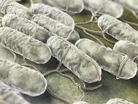What to learn from the recent salmonella outbreak in Canada

It was recently reported by the Public Health Agency that Canadian health authorities are in currently in the process of an investigation after 34 people became sick with salmonella infections. It’s believed that the outbreak has come from having contact with live baby poultry. So far, there are 17 cases in which people became sick between April 5 and May 12—all in the province of Alberta.
Our sister brand, Business Review Canada, stated just yesterday that 13 cases were cases were found in British Columbia, with another four in Saskatchewan. All of the individuals who experienced the sickness had contact with live baby poultry, with many reporting that they had visited the same Alberta hatchery.
RELATED TOPIC: How social media can be used to track disease outbreaks
Treatment of salmonella will be determined by each individual case. Salmonellosis, symptoms of the salmonella infection, can include fever, cramps, vomiting, diarrhea, fever, fatigue and much more. Salmonella can often clear up without treatment in those who are healthy. However, if the symptoms don’t go away and continue to get worse, then it’s important to seek professional help.
Treatment
After assessing the symptoms, doctors will most likely suggest getting plenty of rest and drinking lots of fluids. Blood and/or stool samples may be necessary; antibiotics may be prescribed. In rare and severe cases, it may be ordered that the patient be admitted to the hospital to take fluid intravenously.
RECENT TOPIC: 5 health care giants that are using YouTube right
Preventing future outbreaks
If doctors want to warn patients about the dangers of salmonella and how to avoid it, then they should advise them of the following:
Always thoroughly cook animal meat. It’s important to never eat or drink foods that may contain unpasteurized milk or raw eggs—this is a very common way in which people get infected. As well, vegetables may be contaminated; make sure you always thoroughly wash your vegetables. Make sure to wash your hands after they come into contact with raw meat, poultry or eggs.
It’s not just food that individuals need to be mindful of—salmonella can be found on healthy reptiles and birds and in cat and dog feces. Therefore, when handling these items, make sure to wash your hands with soap and water.
RECENT TOPIC: How health care IT leaders succeed (and 3 tips to follow)


